Related Research Articles

Thomas Beaufort, Duke of Exeter was an English military commander during the Hundred Years' War, and briefly Chancellor of England. He was the third of the four children born to John of Gaunt, Duke of Lancaster, and his mistress Katherine Swynford. To overcome their problematic parentage, his parents were married in 1396, and he and his siblings were legitimated in 1390 and again in 1397. He married the daughter of Sir Thomas Neville of Hornby, Margaret Neville, who bore him one son, Henry Beaufort. However, the child died young.

Thomas Bourchier was a medieval English cardinal, Archbishop of Canterbury, and Lord Chancellor of England.
Roger Walden was an English treasurer and Bishop of London.
Simon Langham was an English clergyman who was Archbishop of Canterbury and a cardinal.

John Kemp was a medieval English cardinal, Archbishop of Canterbury, and Lord Chancellor of England.
William Courtenay was Archbishop of Canterbury (1381–1396), having previously been Bishop of Hereford and Bishop of London.
Thomas Langton was chaplain to King Edward IV, before becoming successively Bishop of St David's, Bishop of Salisbury, Bishop of Winchester, and Archbishop-elect of Canterbury.

Thomas Arundel was an English clergyman who served as Lord Chancellor and Archbishop of York during the reign of Richard II, as well as Archbishop of Canterbury in 1397 and from 1399 until his death, an outspoken opponent of the Lollards. He was instrumental in the usurpation of Richard by his cousin Henry Bolingbroke, who became Henry IV.
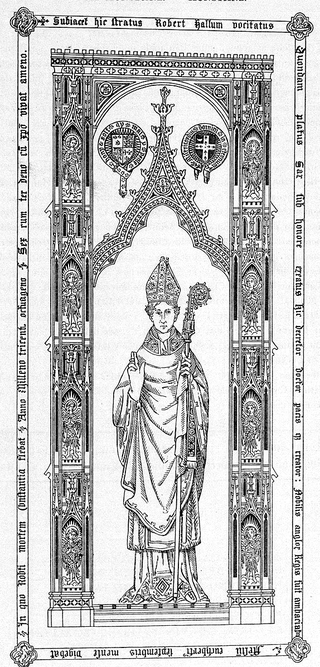
Robert Hallam was an English churchman, Bishop of Salisbury and English representative at the Council of Constance. He was Chancellor of the University of Oxford from 1403 to 1405.
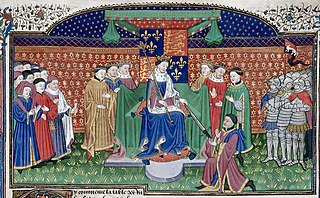
John Stafford was a medieval English prelate and statesman who served as Lord Chancellor (1432–1450) and as Archbishop of Canterbury (1443–1452).

William Giffard, was the Lord Chancellor of William II and Henry I, from 1093 to 1101, and Bishop of Winchester (1100–1129).
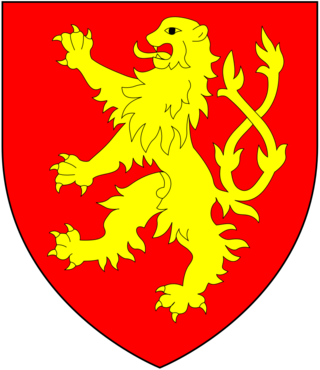
Henry Burghersh, was Bishop of Lincoln (1320-1340) and served as Lord Chancellor of England (1328–1330). He was a younger son of Robert de Burghersh, 1st Baron Burghersh, and a nephew of Bartholomew de Badlesmere, 1st Baron Badlesmere. He was educated in France.
Walter Giffard was Lord Chancellor of England and Archbishop of York.

George Neville was Archbishop of York from 1465 until 1476 and Chancellor of England from 1460 until 1467 and again from 1470 until 1471.
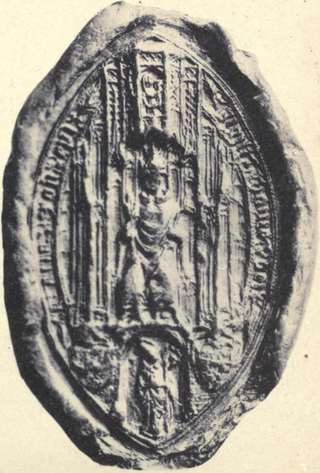
Thomas de Brantingham was an English clergyman who served as Lord Treasurer to Edward III and on two occasions to Richard II, and as bishop of Exeter from 1370 until his death. De Brantingham was a member of the Brantingham family of North East England.

Peter Courtenay was Bishop of Exeter (1478–87) and Bishop of Winchester (1487-92), and also had a successful political career during the tumultuous years of the Wars of the Roses.
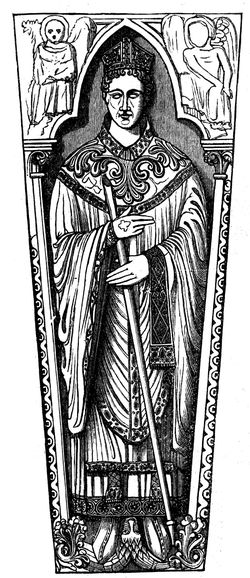
Simon of Apulia was an Italian-born canon lawyer who served as Bishop of Exeter in Devon, England, from 1214 until his death in 1223.

Walter Branscombe was Bishop of Exeter from 1258 to 1280.
John Russell was an English Bishop of Rochester and bishop of Lincoln and Lord Chancellor.
References
- Fryde, E. B.; Greenway, D. E.; Porter, S.; Roy, I. (1996). Handbook of British Chronology (Third revised ed.). Cambridge: Cambridge University Press. ISBN 0-521-56350-X.
- This article incorporates text from a publication now in the public domain : Chisholm, Hugh, ed. (1911). "Courtenay, Richard". Encyclopædia Britannica . Vol. 7 (11th ed.). Cambridge University Press.
- Tout, Thomas Frederick (1887). . In Stephen, Leslie (ed.). Dictionary of National Biography . Vol. 12. London: Smith, Elder & Co.
- Davies, R. G. "Courtenay, Richard (c.1381–1415)". Oxford Dictionary of National Biography (online ed.). Oxford University Press. doi:10.1093/ref:odnb/6455.(Subscription or UK public library membership required.)